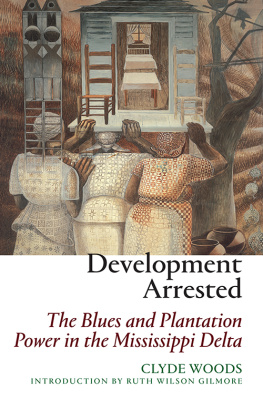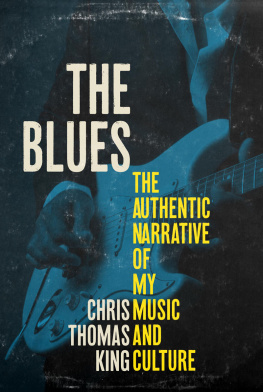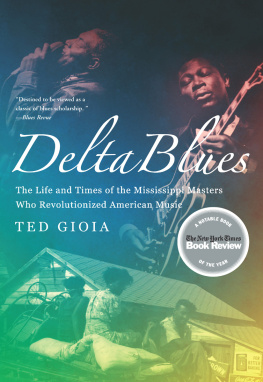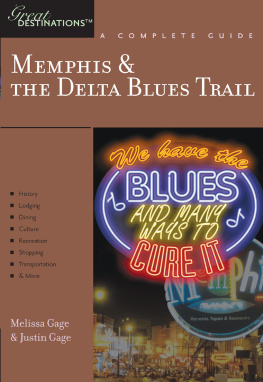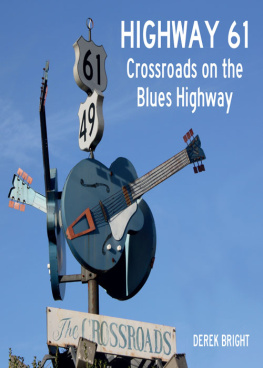Development Arrested
The Blues and Plantation Power
in the Mississippi Delta

CLYDE WOODS
With Introduction by
Ruth Wilson Gilmore

Dedicated to Lena, James, and Malik Woods, Mamie Woods,
Robert Gibson, Nathaniel Gibson, Sr., Denise Bates, and to
Willie Dixon, Fannie Lou Hamer, and Richard Wright
This paperback edition first published 2017
First published by Verso 1998
Clyde Woods 1998, 2000, 2017
Introduction Ruth Wilson Gilmore 2017
All rights reserved
The moral rights of the authors have been asserted
1 3 5 7 9 10 8 6 4 2
Verso
UK: 6 Meard Street, London W1F 0EG
US: 20 Jay Street, Suite 1010, Brooklyn, NY 11201
versobooks.com
Verso is the imprint of New Left Books
ISBN-13: 978-1-84467-561-6
ISBN-13: 978-1-78663-252-4 (UK EBK)
ISBN-13: 978-1-78663-253-1 (US EBK)
British Library Cataloguing in Publication Data
A catalogue record for this book is available from the British Library
The Library of Congress Has Cataloged the Hardback Edition as Follows:
Woods. Clyde Adrian.
Development arrested : the cotton and blues empire of the
Mississippi Delta / Clyde Woods.
p. cm. (The Haymarket series)
Includes bibliographical references (p. ) and index.
ISBN 1859848117 (cloth)
1. Afro-AmericansMississippi River ValleyEconomic conditions. 2. AfroAmericansMississippi River ValleyPolitics and government. 3. AfroAmericansMississippi River ValleySocial conditions. 4. Blues (Music)Political aspectsMississippi River ValleyHistory. 5. Plantation lifeMississippi River ValleyHistory. 6. Mississippi River ValleyEconomic conditions. 7. Mississippi River ValleyRace relations. 8. Mississippi River ValleyPolitics and government. 9. United States. Lower Mississippi Delta Development Commission. I. Title.
F358.2.N4W66 1998
| 976.3300496073dc21 | 9839689
CIP |
Typeset by SetSystems Ltd, Saffron Walden, Essex
Printed in the US by Maple Press
Contents
In a Natchez cemetery I
learn beneath sacred grounds
that hold bones of the Whos
Who of 1800 plantation society
and remains of two Confederate
Generals. A couple of blacks
are interred with honor;
one, a musician, perhaps
a blues singer who did
not sing rain into droughts of
his peoples dayshis people
tilling and tilling so
mansions can be erected;
the other a barber, a free Negro,
who aborted bondage and
owned slaves himself. Cut
down by a white who owed
him money. I learn Natchez
has more millionaires
than any American town
in the early 19th century.
When I visit huge mansions
I run around to the back,
looking for the house
behind the house behind
the Big house where my origins
begin in this Republic.
There: a forlorn abandoned
cabin peers from debris. My
ancestors spirits converse
in broken accents of jimpson
weeds. Bitter winters devour
their names then rush to
confront my face. I do
not find any hints on lips
of guides that they
ever exist.
Makers of wealth
are invisible in America.
Maybe blues singers
molded tales of crimson
sorrows here and moaned them
up river to the deltas
in back stroked agony. Maybe
the crawling kingsnake,
whose head they bash
like that of Choctaw and Chickasawrule
the den of truths
not revealed.
There are no monuments
to those who worked the
landscapes of reality
in this town. This painting
is incomplete. Elegant
mansions are witnesses
to crimes. They testify
with opulence. They
testify with grandeur
and extravagance. Somebodys
hands bleed so I
exist. Somebodys feet
cordoned my boundaries
from wilderness. Somebodys
shoulders hold me up.
Here is an incomplete blues
song. This Natchez I
visit. My epic is totality:
nomadic memory of the
times strolling in breezes.
And despotic hands
clapping limitations
on dawns of brown eyes.
America is my song, red
blood of native Americans
eavesdropping on the heavy
sack my mother pulls. This
land is my landscape of inherited
harvests. I excavate with
songs.
I know this land. I breathe
this land. I birth this land.
I embrace this land. Where, Architect,
James Son Thomas, blue
prints my song in out
stretched screams in tenderness.
He inherits from Gospel
trains rolling from prayers
and sermons. His days mothered
in Leland misery. Muddy Waters, Muralist of
the spirit, scrawls my initials
on hours in this place. His damp
metaphors of pain spread debts
inside memory. Here. Wright lifts
the anvil of articulation
to wring meaning from meaningless
suffering. I know.
My song, polyglot
blues singers voyages
through words on trial. Defends
the voiceless.
In Wolfs laminated
fresco of howls on walls
of my soul. I unravel
a share
croppers diary. A sonic
epic of landless fingers
picking cotton
mouth greed. As guardian
angels. I am the black boy,
as chattel, as sharecroppers,
as worker, as the homeless
and imprisoned.
Here. My song over
flows the gossip of grand
estates and whispers of
famished names of uprooted
from memory. Out
cast memoirs of toilers. I
balance neglect with epic
moans. I am Mississippi: frontier
landscapes of blood
letting and blood
hounds on my trails. Sagas
of the new world: Indians
massacred in my skull. Where
names of the lynched form
a gallery of gentle
side dishes of horror.
My song and I
are combatants on chaotic
plains of experiences.
I come from a million field
hollers and moans. The wretched
itinerary of chains.
I am the native son of
a bitchs brew hopping
a Be-Bop Express
from here to some
where and some
where. I set fires
to curtains of silence.
Sterling D. Plumpp
June 17, 1998
In many ways this project was a lifetime in the making and, therefore, I hope to be forgiven by friends and colleagues inadvertently omitted here. First, Id like to thank my mother, Lena Woods, who has suffered with me, and for me, over these long years. Second, my son, Malik Woods, deserves special credit for developing into a beautiful young man even though his father was not always there to guide him. Other family members were also key: Sylvia, Stephen, and Nathaniel Gibson; the Bates, Beaird, McCormick, Langley, Nelson, and Pye families; Bootsie, Vivian Wilkins, and Pauline Wilson. Additionally, many individuals in Baltimore prepared me for this journey including Beverly Boston, Eddie Conway, Rev. Vernon Dobson, Elizabeth Hurley, Twila Mohammed, Esther Redd, Andito Siwatu, and the students, staff, and faculty of the Department of Urban and Regional Planning at Morgan State University. Among my academic influences Im especially grateful to Calvin Hernton at Oberlin College who set me on this journey twenty years ago and to my committee chairperson, Ed Soja at the University of California, Los Angeles, who helped me see it to completion. Ive also been fortunate enough to receive guidance and inspiration from the following scholars to whom Im eternally grateful: Hamza Allavi, Robert Bullard, Charles Burnett, Judith Carney, Julie Dash, Leo Estrada, Margaret FitzSimmons, John Friedmann, Teshome Gabriel, Haile Gerima, Ruth Gilmore, Eugene Grigsby, Cynthia Hamilton, Susanna Hecht, Allan Heskin, Gerald Horne, John Horton, Mel King, Yusef Lateef, Anthony Parent, Laura Pulido, Leonie Sandercock, Theressa Singleton, Michael Storper, Bonnie Thornton-Dill, Maria Varela, and Billy Woodberry; Im eternally grateful also to the students and staff of the Department of Urban and Regional Planning, UCLA.

